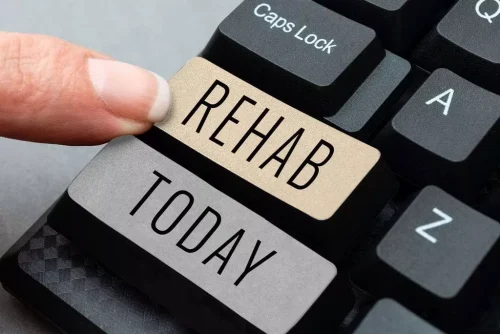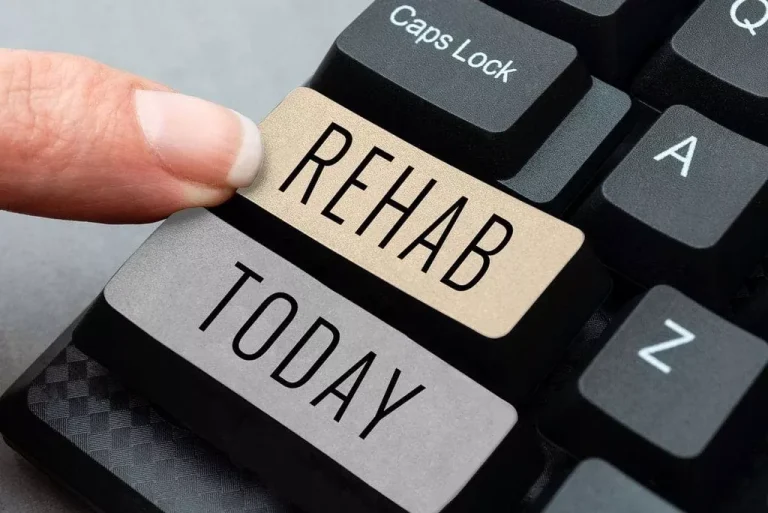
Treatment for marijuana addiction can assist people in overcoming a substance use disorder. Treatment plans are catered to meet the client’s specific needs. Many people have overcome their problems with marijuana abuse by attending a rehab facility. In other words, the more someone uses weed, the more they will need to use as their body becomes desensitized to it. An addiction to marijuana (weed) is not common, but it is possible. Approximately 1 in 10 people who use marijuana will develop cannabis use disorder.
- In some states, weed is legal for medical reasons, personal use, or both.
- It typically involves an overpowering desire to use cannabis, increased tolerance to the cannabis and/or withdrawal symptoms when you stop taking it.
- At Sana at Stowe, we integrate Acceptance and Commitment Therapy (ACT), Nonviolent Communication, and Motivational Enhancement Therapy (ME) into our treatment plans to help individuals understand their substance use in the broader context of mental health.
- For individuals who experience anxiety or panic as a result of cannabis withdrawal, prescription anti-anxiety medications can be given in a controlled treatment setting to ease weed withdrawal symptoms.
Aftercare and Ongoing Support

CUD can significantly impact your health, relationships and overall quality of life. It’s crucial to seek help as soon as you develop signs of it. Marijuana is parts of or products from the Cannabis sativa plant that contain substantial amounts of tetrahydrocannabinol (THC) — the chemical that makes you feel “high.” Marijuana is cannabis, but not all cannabis is marijuana. Cannabis use disorder (CUD) mainly involves THC-containing substances (marijuana).

Mental Health Newsletter
But risks are heightened for people who are older or for those who are suffering from an illness that affects the immune system. Although there was some limited evidence that the medication reduces large intestine contractions, results on pain relief have been mixed. Other studies suggest that those with diarrhea-predominate irritable bowel syndrome (IBS-D) amphetamine addiction treatment and alternating IBS may benefit from Marinol (dronabinol).
Risk factors
It can be hard when you’re living with marijuana abuse or watching someone you care about deal with it. They can help identify treatment options that are appropriate for your situation and provide resources for family and friends. Many studies have been done on the effects of marijuana abuse during pregnancy, and results are conflicting, possibly because of other substances used and/or abused during pregnancy, including tobacco.
In 2020, over 49 million people 12 years old or older reported using marijuana within the past year. With more and more states legalizing marijuana, use is increasing—and more information how long does weed stay in your system is coming to light about marijuana addiction and cannabis withdrawal. If you experience marijuana withdrawal, you may have cannabis use disorder.
- Changes in state laws mean marijuana is available to more people, for both medical and recreational use.
- At this time, there is no medication approved by the Food and Drug Administration (FDA) to treat cannabis use disorder, though some medicines are currently under investigation.
- Thus, the NIH and FDA have recently called for consideration of meaningful study endpoints in addition to abstinence in research on new smoking-cessation products6; though abstinence is still required as the main outcome for medication approval.
- If you use marijuana regularly, your brain can stop making its own version and start to depend on THC instead.
- Despite the promising results of reducing or maintaining a consistent opioid dose, it is plausible that the substitution of one rewarding substance (opioids) for another (THC) could be problematic, leading to cannabis use disorder (CUD).
- The uses of prescription forms of medical marijuana have neither been shown to have clear benefits for IBS nor have they been approved by the FDA for use as a treatment for IBS.
During a drug detox, you’ll be in a safe environment, under the care of experienced professionals. Furthermore, marijuana may be laced with other products or substances. Using marijuana with other substances may result in greater impairment than using it alone.9 It may also cause severe intoxication and dangerous—even fatal—effects, depending on the adulterant mixed with it. About 30% of people who use marijuana may have some level of marijuana use disorder. Those who started using it before age 18 are 4 to 7 times more likely to than people who started later.
Read on to learn more about marijuana, its effects, addictive potential, and type of treatment for those who struggle with its misuse. If you’ve been regularly using large amounts of weed, withdrawal symptoms might start within a day or two. The main psychoactive ingredient in weed, THC, travels into your bloodstream to your brain. Once there, it connects to tiny receptors on your nerve cells called cannabinoid receptors. You can think of these receptors like bouncers at a club, monitoring what goes in and out of your cells.

Diagnosis of Cannabis Use Disorder

For many people, medical detox is the first step in the recovery journey. Detox helps prepare people for rehab by managing weed withdrawal symptoms and making the process as comfortable and safe as possible. Professional addiction treatment specialists are on hand to promptly address any issues that may arise during cannabis withdrawal treatment. Substance use disorders don’t have one specific cause that fits all people diagnosed with the condition. Stress, emotional distress, and other mental health conditions (such as anxiety and depression) can all contribute to the development of cannabis use disorder.

It can pose a barrier to seeking and entering treatment and perpetuate stigma and shame at treatment setbacks. By the same token, reduction of substance use has important public health benefits as well as clinical benefits for patients, and recognition of this could greatly advance medication development for treatment of addiction and its symptoms. Aftercare is any form of care that continues the recovery process.1 Aftercare is designed to monitor you or your loved one and help respond effectively if there is a return to using marijuana or a mental health crisis. Although your treatment program should assist you or your loved one in developing a relapse prevention plan, aftercare will help support this plan. Objective assessment of use reduction for illicit substances presents a greater difficulty given variability and uncertainty of the composition and purity of illicit drugs purchased.
Why Can You Get Addicted to Marijuana?
- You can recognize marijuana use by looking for physical and behavioral changes.
- Cannabis’ greatest potential to positively impact the opioid epidemic may be due to its promising role as a first line analgesic in lieu of or in addition to opioids.
- If you vape or smoke weed, THC could get into your bloodstream quickly enough for you to get your high in seconds or minutes.
- Another component of marijuana, cannabidiol (CBD), offers symptom relief but without causing brain and motor functioning changes.
As with all forms of substance addiction, cannabis misuse causes a range of signs and symptoms. These can vary in appearance and severity from person to person. Weed can stay in your system for quite a long time too, so these symptoms of addiction can present themselves at different times.


